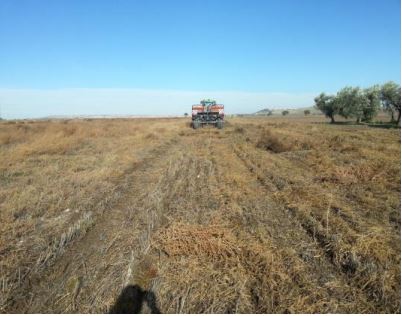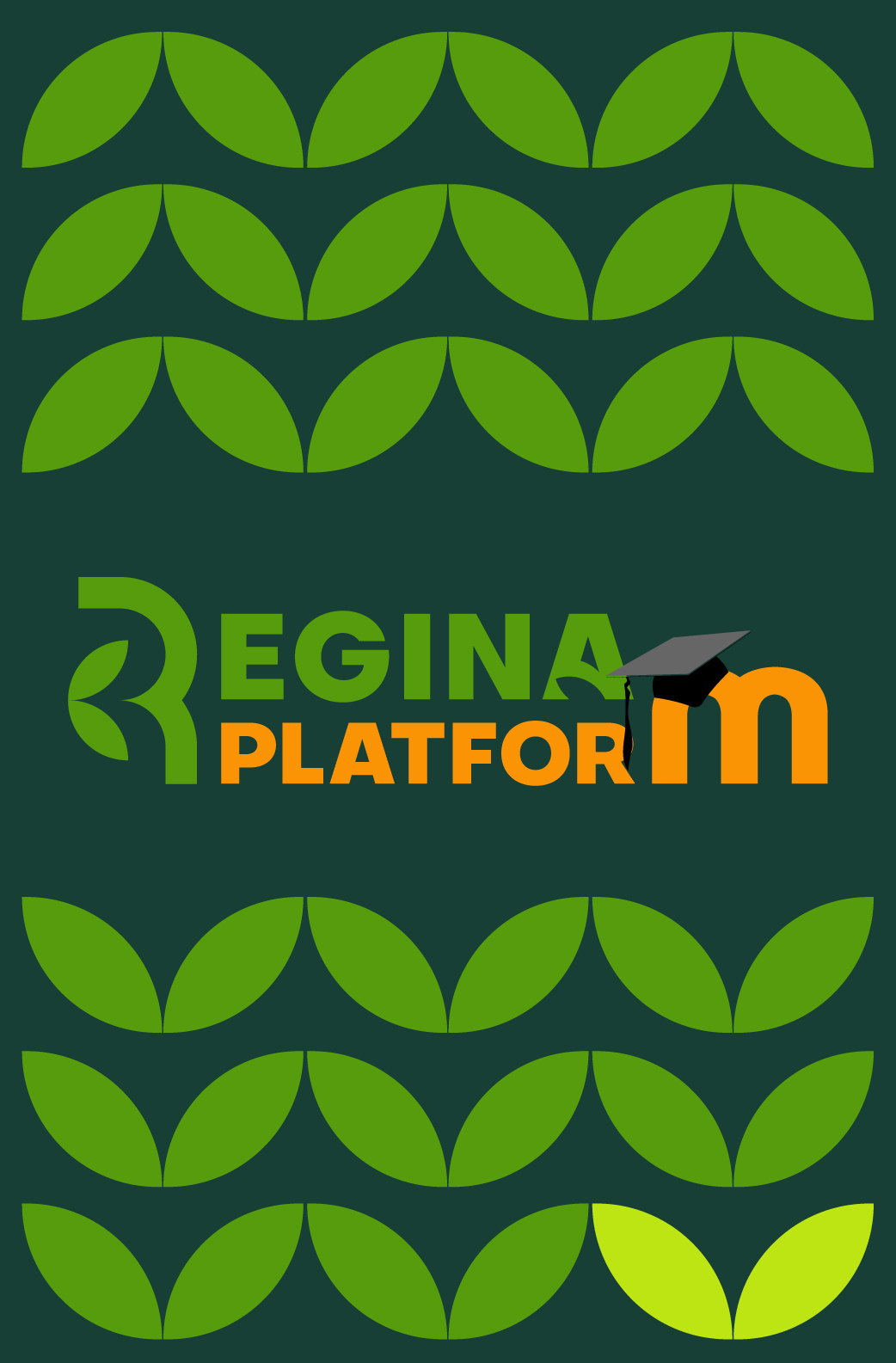Giuntoli’s Farm
Success Story
The Sante Giuntoli’s Farm is located in Troia, a small village in the province of Foggia (Apulia region, Italy). The farm has a surface area of 100 ha with 3 people as permanent staff. They are cultivating the following crops: durum wheat (Triticum durum L.), field bean (Vicia faba subsp. Minor), sunflower (Heliantus annuus L.), and chickpea (Cicer aretinum L.). They have also a small livestock breeding with 20 calves. They apply some of the practices of regenerative agriculture (RA) that are common to soil conservative practices. In particular, they apply a two-year crop rotation, alternating legumes and cereals. They also execute no-tillage soil management and use legumes as cover crops. They apply the abovementioned practices on the overall farm. Specifically, they started to apply previous practices in 2008, and they are still applying them in the present.
The farmer is an agronomist. In 1977, a Professor held a lesson about the benefits of sod seeding, therefore he was very passionate about it. Therefore. he started to apply it very roughly with old machines, but with the new machine for sod seeding ha has entirely converted his farm. He received training from some agricultural associations, but also from the company that sold him the sod seeding machine. However, he received financial support from some regional funds (330 €/ha). After the application of the soil conservative practices, he experienced an increase in gross production, soil organic matter, and soil fertility, but also a reduction of workload. On the other hand, he has had a problem with Lolium and he solved it with the use of a decision-supporting system (DSS). Altogether, the farmer is very happy to apply soil conservative practices.
LABELS: Italy, crop-production, crop-rotation
|
GENERAL INFORMATION |
|
Location of farm |
Troia (Foggia, Italy) |
|
Name of the farmer |
Santino Giuntoli |
|
Size of farm |
100 ha |
|
Permanent staff |
3 |
|
Main products of farm |
Durum wheat, field bean, sunflower, chickpea, small |
|
CURRENT REGENERATIVE AGRICULTURE PRACTICES ON THE FARM |
|
Farmland cultivated with RA practices |
All |
|
Crops produced with RA practices |
All |
|
Duration of using RA practices |
Since 2008 |
Read more information in pdf...

The REGINA project (No. 2021-1-HU01-KA220-HED-000027629) was funded by the European Commission. The content of this website does not necessarily reflect the views of the European Commission.
Call 2021, KA220 – Cooperation Partnerships in Higher Education
The European Commission’s support for the production of the publications does not constitute an endorsement of the contents, which reflect the views only of the authors, and the Commission cannot be held responsible for any use which may be made of the information contained therein.


